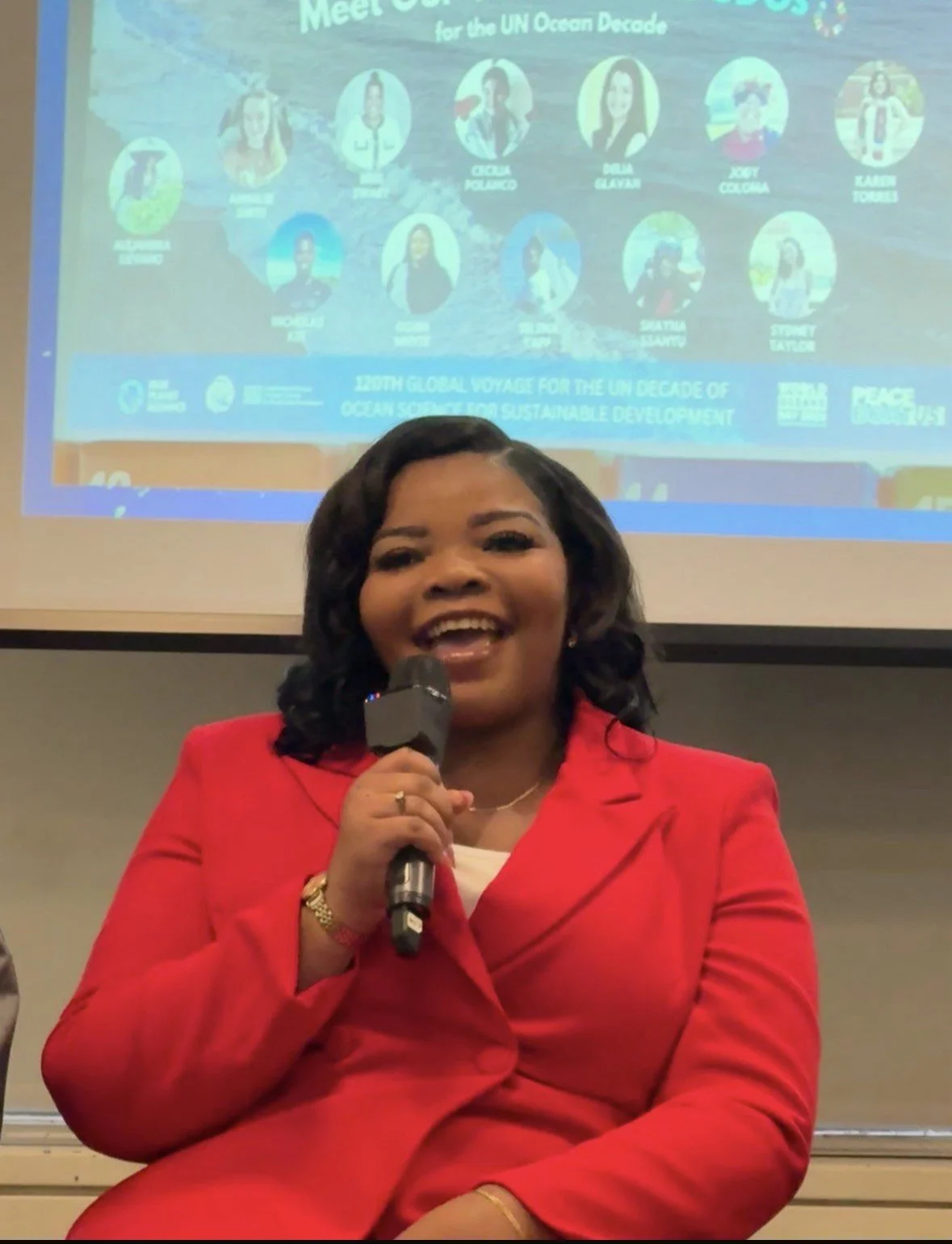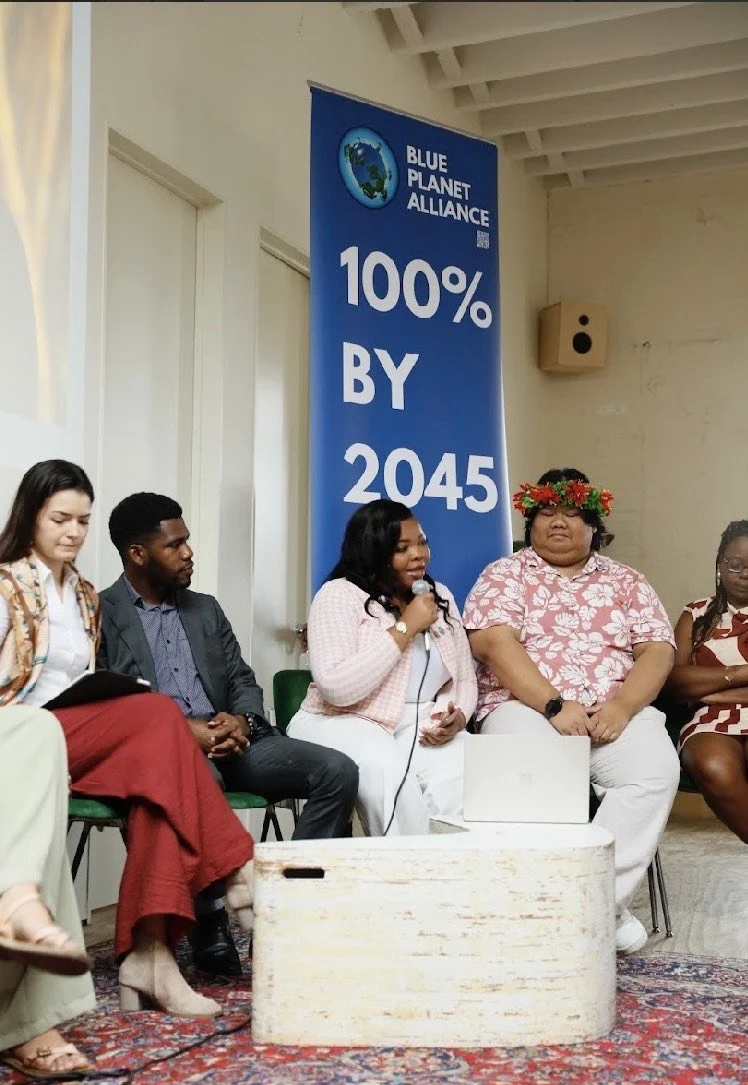A Region at Risk: The High Price of Global Inaction…
In the wake of Hurricane Melissa, the Caribbean is once again left to pick up the pieces. From Jamaica to Cuba, Haiti to the Dominican Republic, and The Bahamas, the stories are heartbreakingly familiar. We hear the pleas, watch the news, and witness roofs ripped off, coastlines swallowed, and lives upended. As one Jamaican put it, “the water is taking back its rightful space.” The images flash across international screens for a few days, and then the world moves on to the next big story. For us in the Caribbean, there is no moving on. We thank God for life. We rebuild. We grieve. We unite and start again, always knowing another storm is coming.
The increasing intensity of hurricanes in our region is not a coincidence. It is something we see with our own eyes when attending COP, which is happening right now in Brazil, or the United Nations General Assembly. It is climate injustice in motion. The same nations that built their wealth on centuries of extraction and exploitation from our land, our labour, and our natural resources are now the ones whose emissions continue to heat our oceans and destabilize our weather systems. Hurricanes like Melissa are not acts of fate. They are the visible, violent consequences of global inaction. António Guterres, the UN Secretary-General, warned that the world is “on a highway to climate hell with our foot still on the accelerator,” and I am inclined to agree.
For the Caribbean, climate change is not a distant threat. It is our daily reality. Our coral reefs are bleaching, our coastlines eroding, and our farmers struggling to grow crops in unpredictable weather patterns. Yet we contribute less than 1% of global greenhouse gas emissions. Still, we are made to bear the brunt of a crisis we did not create. We hear the passion of our Caribbean brothers and sisters, and we know the repeated phrases from our activists. Too often, we are reduced to the world’s backdrop, a beautiful escape for tourists seeking sun, sea, and serenity. Some in the global imagination still treat the Caribbean as a playground, not a place where real people live, work, and fight for survival every day amid intensifying storms, threatened livelihoods, and coastal erosion. The news cycles are short, and global organizations document our crises for a fortnight at most, then return to regular programming. Their narratives erase our struggle and our power.
We are a region of resilience, innovation, and ancestral wisdom. If our history has proven anything, it is that we are resilient people. We are more than our vulnerability and continue to rise in the face of adversity. We are scientists building renewable energy systems, young activists leading climate strikes, farmers returning to indigenous growing methods, and artists turning wreckage into resistance. Sustainability, no matter how the bigger conglomerates wish to define it, is not one-size-fits-all. We are reclaiming our right to define what sustainability looks like for us, by us.
What the Caribbean wishes to echo to the world is this: The Caribbean is not disposable. Our islands are not collateral damage in someone else’s pursuit of progress, nor are they a speaking point to garner a round of applause at conferences. We are real people living through real existential crises. The countries most responsible for the climate crisis, the Global North, must be held accountable. Real accountability for me and many of my colleagues looks like climate finance that reaches the people most affected, not filtered through bureaucracy. It means debt relief so our nations can rebuild sustainably. It means global solidarity that treats our lives as equal in worth, not as footnotes to disaster headlines.
Hurricane Melissa is a continuous warning and a call. One for truth. One for justice. One for helping to rewrite the story where the Caribbean is no longer the world’s playground, but its moral compass. We, the resilient people of the Caribbean, will continue to do our part in demanding that those who have caused this crisis finally take responsibility.
I wish to echo Jamaica’s motto, “Out of many, one people.” We are still here. We are still rising. We remain grounded in rising tides, and we refuse to be washed away.
Kerese Elliot
About the Author
Kerese Elliott is a sustainable fashion designer and climate advocate from Saint Kitts and Nevis. She is the founder of Empressive Designs and ClutchED, eco-conscious brands that repurpose high-quality fabric off-cuts into thoughtfully designed bags and outfits, promoting circular fashion within small-island economies.
With a background in Political Science and Law, and as a Policy Officer at the Ministry of Tourism, Kerese combines sustainability with policy expertise to address environmental challenges. She was selected for the Caribbean Climate Justice Leaders Academy, one of nine participants chosen from over 500 applicants, and represented St. Kitts and Nevis at COP28 in Dubai, contributing to discussions on sustainable fashion and the vulnerabilities of small island developing states. She is also a Global Ambassador for Blue Planet Alliance, advocating for 100% renewable energy by 2045.
Through her design work and environmental leadership, Kerese champions locally driven solutions, innovation, and community empowerment across the Caribbean.
*Supporting Hurricane Relief Efforts
For those interested in supporting ongoing hurricane relief efforts across the Caribbean, Island Girls Rock is proud to work with organisations doing critical work on the ground. These include Girls Care Jamaica, White Ribbon UK, Hope for Haiti, and Haiti Air Ambulance. Your support can help provide emergency aid, resources, and recovery assistance to communities impacted by Hurricane Melissa.


